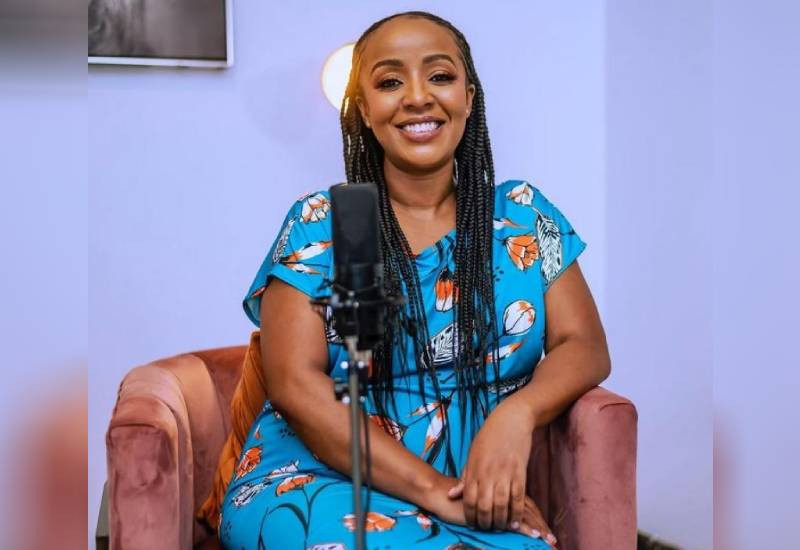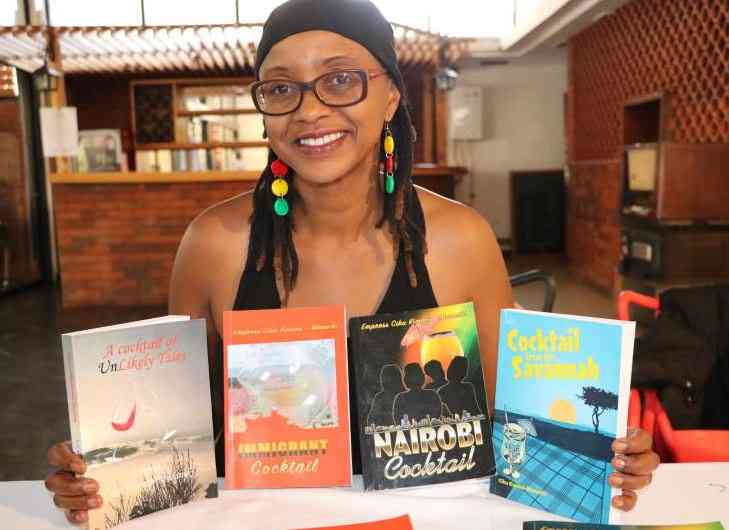
Job-hunting is not easy - you have to constantly put your best foot forward in the race to get the job you deserve.
The scarcity of jobs in the country, and the competitive nature of the corporate field only make it harder.
In 2020, the national census revealed that 39 per cent of youth are unemployed. The data showed that 5,341,182 of the 13,777,600 people aged between 18 to 34 years are jobless.
KTN Home's Her Standards addressed the crucial topic of job searching with Human Resource Professional and Career Coach Joan Thuo.
The show tackled popularly asked questions as Joan gave her expert tips on job-hunting and avoiding mistakes that can limit your career.
Joan has grabbed the attention of career-minded individuals across the country with her tips on YouTube and through her Career Coach brand.
The HR professional says she took on the career coaching journey because it was something she was passionate about.
Love what you do
Loving what one does is a big part of the recipe for career success, says Joan.
She says that as you consider beginning your job hunt, there are some questions you should ask yourself to find the career that is truly aligned with you.
"What can you do better than many others with the least amount of effort? What are you complimented on? What comes naturally to you?"
The HR professional says that most people focus on which is the most marketable degree, pointing out that they fall short when they do not focus on their strengths, skills and passion.
"Money will always follow purpose. Do not just take a degree because it is marketable or because you got an A. Many people are finding themselves in situations where they are doing work which does not align with their skills and passions," Joan says.
She describes the process as one that begins with "having a simple conversation with yourself about what you are passionate about and why."
The career coach notes that she would include four crucial items in the perfect 'career starter pack.'
These are the things that someone who is starting their career should have as a bare minimum, according to Joan.
"That starter pack should include two types of Curriculum Vitaes (CVs). There is a modern CV and an Applicant Tracking System (ATS) CV," she says.
"Because of the high number of applicants, there are many organisations which have the CVs screened by a computer before they land on the HR's desk."
Joan says that for the job search, a candidate needs a CV tailored to pass the ATS software. The Modern CV, on the other hand, is visually attractive and brief.

Best CV
But how do you pick which type of CV to use for which application?
"You need to have both versions. The ATS may not be the most suitable to give to a human being, however," she says.
The career coach adds: "It depends on who is asking for the CV. If it is you who is asking, that you have heard of an opportunity, I will submit a modern because I know it is for your eyes. If I am uploading in a portal, possibly where those CVs are going to go through software, I should probably use the ATS one."
Joan notes that in our tech-savvy days, having a LinkedIn profile is crucial.
"The reason why some of us have not gotten the jobs we desire or are not paid as much as we should is that you are sitting on a goldmine but no one knows about you because as far as they are concerned, you do not exist."
She adds: "The other thing that you need is a cover letter. Many hiring managers and recruiters will require this from you. These are the four things that you should have as a fresh college graduate."
When it comes to getting shortlisted for an interview, the career coach says some people are highly skilled and brilliant, but do not know how to translate their capabilities onto paper.
"Some hiring managers cannot look past a bad CV," she says, noting that this is where the benefit of hiring a CV writer comes in.
When the 'tell me about yourself' question comes up in an interview, Joan says that although it is easy to take this as an invitation to get personal, one should avoid that at all costs.
About yourself
"What the hiring manager is asking is who you are about this job that you are applying to," she says, adding, "Talk about your education, certifications, some of the awards that you have received; your current position, your title, your key achievements and why you believe you are a good fit for this role."
The HR expert advises job-seekers to avoid personal or sensitive topics including politics and spirituality. On common CV mistakes, Joan warns against resumes that are too long, and too short and those that have spelling and grammatical mistakes.
"Work smart - do not send 500 unsuccessful CVs that have spelling mistakes. You would rather send two good ones."
Joan insists that during the application process, honesty is always the best policy.
She says getting caught in a lie is something one cannot recover from, adding that some common lies include those about speaking additional languages, their level of education and current salary.
"If you are earning Sh50,000 and you are applying for a Sh400,000 job and the potential employer asks what you are earning and for your payslips, give it to them as they are," the career coach says, adding that in such a situation, one should focus on justifying why they want to have that increment in their income.
"There are many people who are underpaid maybe because the organisation they work in has never raised the salary. They are being paid less than they deserve and not because they are not working as hard," she says. "Explain yourself."
Then there is the salary expectation question, which Joan notes requires a bit of research to answer efficiently.
She advises job seekers to ask around and get to know the pay range of that particular job at that organisation or industry.
"Ask for a salary as per the range, not much more and not much less. Always give a number and one that you can negotiate, and give your expectation in gross pay."
 The Standard Group Plc is a multi-media organization with investments in media platforms spanning newspaper print
operations, television, radio broadcasting, digital and online services. The Standard Group is recognized as a
leading multi-media house in Kenya with a key influence in matters of national and international interest.
The Standard Group Plc is a multi-media organization with investments in media platforms spanning newspaper print
operations, television, radio broadcasting, digital and online services. The Standard Group is recognized as a
leading multi-media house in Kenya with a key influence in matters of national and international interest.

